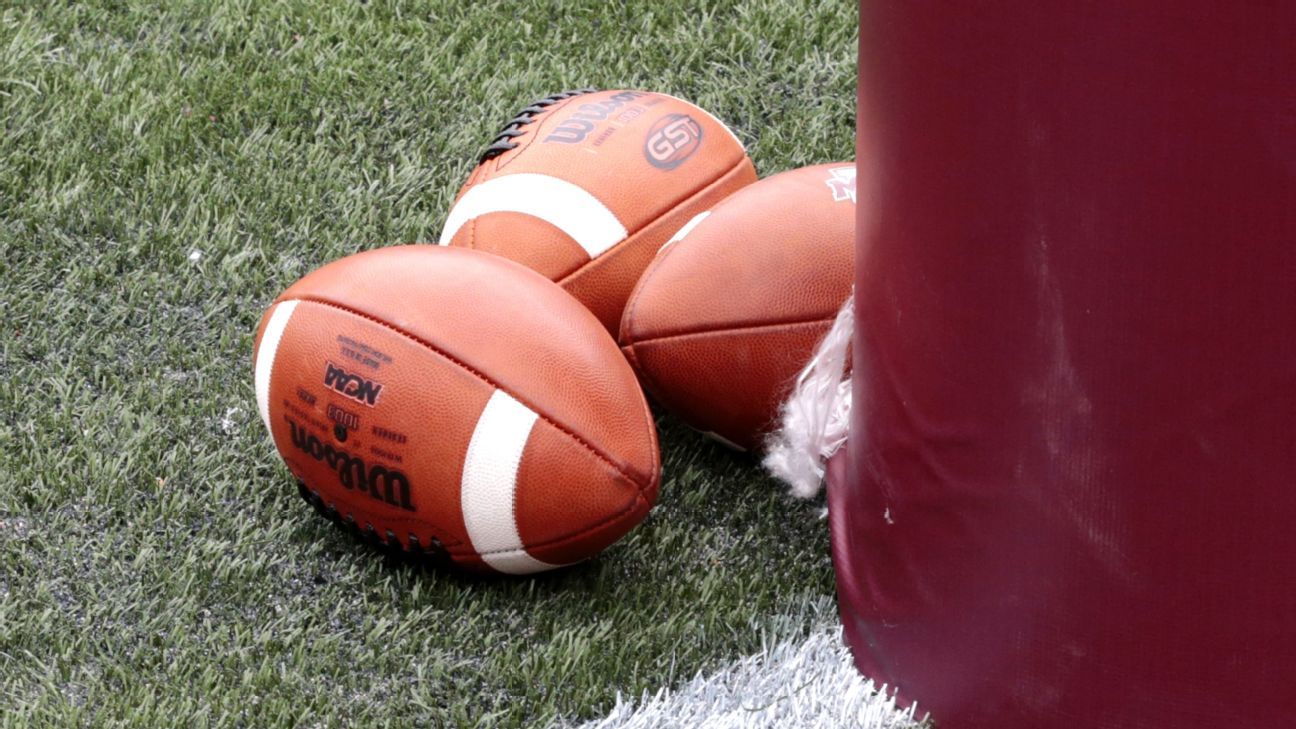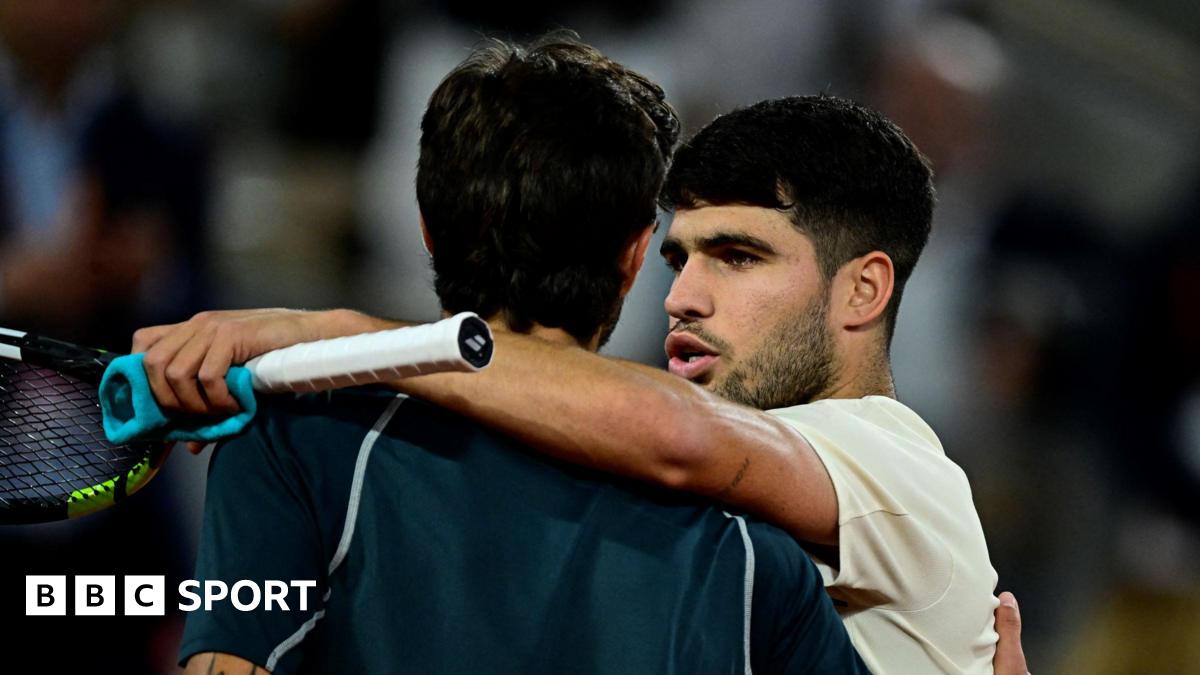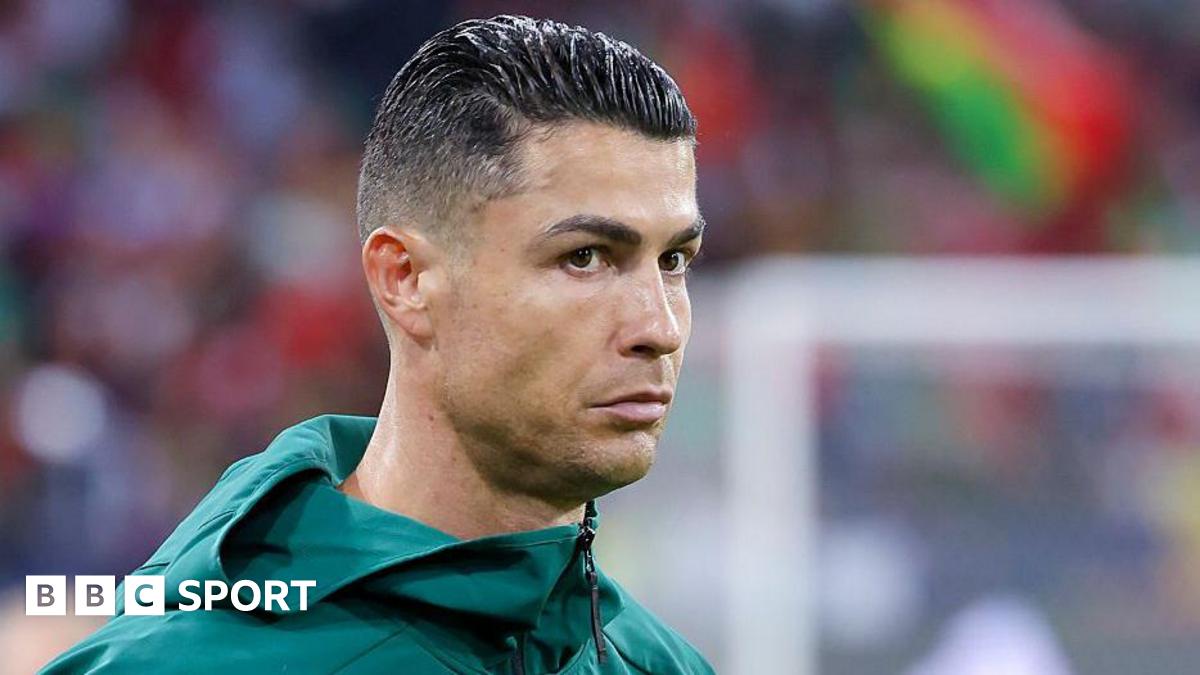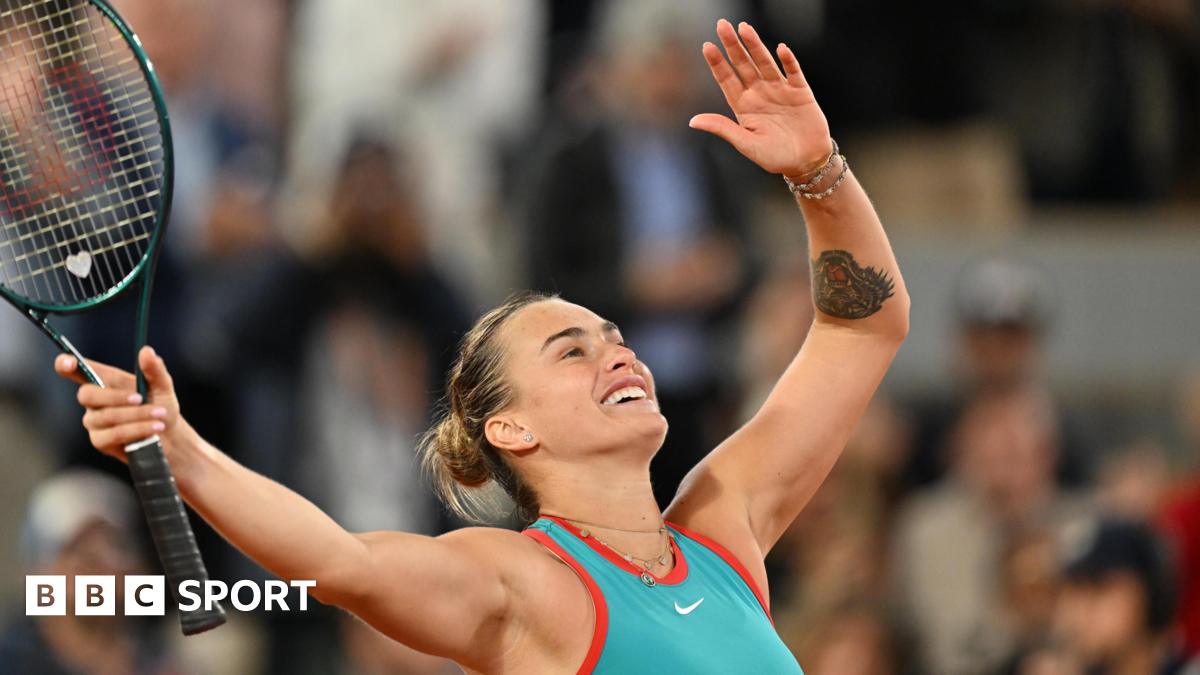
Andrea AdelsonMay 21, 2025, 08:10 AM ET
- ACC reporter.
- Joined ESPN.com in 2010.
- Graduate of the University of Florida.
TALLAHASSEE, Fla. -- Florida State softball coach Lonni Alameda sits just outside the main waiting room at Tallahassee Memorial Cancer Center with a black cap pulled low over her bald head and a long gray sweater keeping her warm. She readies her bag, loaded with notes and her laptop, so she can start breaking down game tape once she gets settled.
"Alana?" a nurse calls.
She picks up her bag, strides over and smiles at hearing her given name. The softball world knows her as either Lonni or "Coacha," the nickname her players use.
On this particular day in April, she is led through the doors and into a bigger pod in the corner, the windows offering a view of the trees outside. The nurse draws the curtains, offering some privacy. Though nothing hints at who she is, the staff knows. The nurse starts peppering her with questions about how she feels to make sure she is not overdoing things at work.
Alameda assures them she is doing just fine. The nurse starts testing her blood pressure, taking her temperature and reading results from a blood test she was given earlier in the morning -- all to ensure she is ready to receive her next chemo treatment for breast cancer.
Since mid-March, this has become her routine every Monday, arriving at the hospital between 7:30 and 8 a.m. so she can get home by early afternoon. Every week, she inches closer to not only beating cancer but reaching the ultimate goal on the field: another trip to the Women's College World Series. That quest has reached its pivotal moment, starting Friday against Texas Tech in the super regionals.
No matter what happens this weekend, a second cycle of treatments awaits after the WCWS in June. That cycle involves an even more potent chemo drug, Adriamycin, known as "The Red Devil" because of its color and potential to intensify side effects, including nausea, vomiting, mouth sores and fatigue.
Alameda catches herself thinking ahead and imagining the worst. She stops, repeating a mantra she uses with her team.
"I have to be 10 toes down," she says. "I just have to be right here. Right now."
The focus is today, and today she feels happy and hopeful. The nurse connects the IV to the port implanted in her chest. The chemo drip begins.
AT NOON THE following day, Alameda is on her feet at JoAnne Graf Field. Every Tuesday, she spends two hours working with each of her pitchers, going over notes she has made over the previous week.
Alameda says she feels good today. She always does the day after chemo because she is given steroids to help minimize the side effects. Eating is often a chore: Food has lost its taste, and the nausea makes it hard to eat big meals.
Later in the week, she knows the exhaustion will hit her. The biggest issue right now is the rashes that have crept up and down her arms and legs, a side effect of an experimental drug she is trying as part of her regimen. She wears long sleeves and long pants to help minimize the urge to scratch.
When it is time for true freshman Jazzy Francik to take her turn, Alameda reminds her about the importance of having patience throughout the long season. They practice her drop ball first, then her screwball.
"Good!" Alameda says. "Just like that!"
Less than two weeks later, Francik would become the first true freshman to throw a no-hitter at Florida State since 2012 -- on the same weekend the Seminoles clinched the 15th regular-season ACC title in school history. In early May, Alameda was named ACC Coach of the Year for the seventh time and now has the Seminoles in position to make their sixth WCWS appearance in her 17 years as head coach.
Her players want nothing more than to win for her.
"This is bigger than softball," sophomore shortstop Isa Torres said. "We know how much she pours into this program. So being the best versions of ourselves out on that field every single day is what we are going to do for her. We don't want to do it for ourselves. It's always for her."
Alameda took over the FSU program in 2009 following NFCA Hall of Fame coach JoAnne Graf's stint that led to two AIAW national titles. Alameda has already built on that legacy -- leading the Seminoles to the 2018 national title, nine ACC tournament championships and more than 800 wins, becoming a Hall of Famer herself.
Not once did she think about stepping away after her diagnosis. In her mind, she could practice what she always preaches -- the importance of showing up, even during tough times.
"When you talk about showing up -- maybe I don't feel good today, but I'm going to be here," Alameda says. "As a young person, if you can see people can do that in life in general, that is what we are talking about. It is just really important for me to be here."
Alameda points out this is Team No. 42 at Florida State. As is tradition, players pick a theme for the season in August. This season, they chose to find peace in their journey.
"Grateful 4 Everything
Entitled 2 Nothing"
This slogan feels even more meaningful now.
ALAMEDA GOT AN urgent phone call in June 2024 while she was on the road recruiting. Her younger brother, Aaron, had died suddenly of a heart attack in their native California, two months shy of his 52nd birthday. She immediately flew home to spend time with her mom and dad, as they processed their grief together. The task of cleaning out his apartment fell to her. In between moving boxes, she felt something tweak in her knee.
The pain intensified over the ensuing months until she felt a pop. She underwent knee surgery in early November. For eight weeks, she was not allowed to put any weight on her knee and had to get around using crutches.
On Christmas Eve, Alameda put her crutches under her arms, just like she had done for weeks. But this time, she immediately felt a burning sensation between her armpit and right breast, as if the crutch had punctured something deep inside.
She touched around the area and felt a mass. Unsure whether it was a welt from using the crutches or a breast lump, she called her gynecologist to get the next available appointment. Alameda was up to date on her mammograms, and she never had any issues. This time, though, she had a bad feeling.
In early January, she went in for an ultrasound, which can detect lumps that dense breast tissue sometimes hides during routine mammograms.
"You have a pretty big mass in there," the technician said.
All Almeda could think was, "My brother, in a weird way, is saving me right now."
Alameda was sent for more testing while waiting for an official diagnosis. Finally, in late February, doctors told her that she had Stage 3 triple-negative breast cancer. Her mass was between the size of a walnut and a tangerine, and they would need to begin chemo as soon as possible to shrink the tumor. The good news, in this case, was that the cancer had not spread to her lymph nodes. Doctors reassured her that there is a high success rate in treating this type of cancer, and her prognosis was good.
"The doctor, she came in and gave me a big hug because I have known her for a long time, and she was like, 'You're a fighter, and plenty of people live through this. You're going to be fine.' So I was like, 'OK, I'm going to be fine.' It was all very positive. They conveyed a plan right away, and I was all in," Alameda says.
Alameda gave her doctors her calendar and made one thing clear: They would need to fit her treatments in between practices and games.
One of her first calls went to FSU women's basketball coach Brooke Wyckoff, who coached during the 2023-24 season after her breast cancer diagnosis and treatment plan. Alameda had a list of questions: When would she start feeling sick? How sick would she feel? How should she manage her team? How should she manage her schedule?
Wyckoff told her it was important to delegate responsibility to others on her staff because she would not be able to keep the same pace. Alameda was known for staying up late, sending emails at 2 or 3 a.m. She would not be able to do that any longer. Wyckoff also warned that Alameda would have to be more careful about going into crowded spaces since her immune system would be weaker than usual.
But more than anything, Wyckoff supported and encouraged Alameda to keep coaching.
"This job really is your life," Wyckoff says. "Not in a bad way, in all the best ways. It's a passion, it's a lifestyle. To imagine just giving that up and saying I'm not going to be a part of that for a season is unthinkable. I was so excited about the season and our team, the thought of just walking away from the girls, I just couldn't. Lonni said the same thing."
ALAMEDA HAD HER first treatment March 17. The hard part would come next: telling the team. Just before their midweek game against Stetson on March 26, she called a meeting.
She thought a lot about what she wanted to say and wrote pages of notes. But as soon as she got up in front of the team, she burst into tears. She managed to blurt out, "I have breast cancer." Senior catcher/outfielder Katie Dack immediately hugged her. The rest of the team followed, enveloping their coach through their own tears.
Alameda told the team how she planned to coach, reassuring them that she would be OK.
"You never want to see your strong, fearless leader get diagnosed with something like that," fifth-year senior catcher Michaela Edenfield says. "But I kept thinking, 'Now it's our turn to be there for her.' I just remember looking at her when she was done talking, and I said, 'Coacha, you're truly one of the strongest, bravest women I've ever met in my whole entire life. Please let us know how we can help you.'"
Two days later, their Friday night game against NC State took on even bigger meaning. It was their annual "Paint it Pink" game, an athletics department initiative across all women's sports that raises money through auctions and fundraising for the Tallahassee Memorial Hospital Walker Breast Program.
Alameda and Wyckoff have been involved in fundraising for this program; they are pictured in a photo from August 2023 with volleyball coach Chris Poole and hospital officials. Alameda is front and center, Wyckoff next to her, holding a donation check for $12,672.
At the time of the photograph, Wyckoff had been undergoing initial testing for breast cancer. The money was going to buy a machine that would speed up detection. "It just hit me so hard," Wyckoff says. "This technology they are buying, that's me. I'm a patient now." Within 17 months, Alameda would be a patient, too.
Alameda knew she could not keep her diagnosis within the walls of her program for much longer. On March 31, she publicly announced her diagnosis and plan to continue coaching.
The initial response overwhelmed her. Flower deliveries and packages flooded her office. Alameda goes through photos in her phone to show some of the items she received -- fluffy blankets, a homemade patch quilt and plenty of inspirational messages from former players and connections across the sport. Her former Oklahoma teammates even hand-delivered beaded bracelets that say "Team Lonni."
Howard Community College in Maryland sent her cooling gloves and socks to use during chemo to help reduce neuropathy symptoms, which include numbness and tingling in the hands and feet.
Every Monday, she fills the gloves and socks with ice. As her fingers and toes grow red from the cold, pain sets in. She tells herself, 'Just a little while longer.'
IF ALAMEDA IS known for one thing other than winning, it is her trademark long braid. Once she began chemo, she decided to cut the braid off and donate it to Locks of Love, an organization that makes hair prosthetics for financially disadvantaged children.
The hair that remained soon started falling out in chunks, so she shaved her head. Senior infielder Krystina Hartley told Alameda she wanted to help, so they decided to do it with the team at their hotel after their April 9 game against Saint Mary's in California.
"I do think it's part of a stage going through cancer that could be celebrated," Alameda says. "It doesn't have to be like, 'Oh, go hide. You've got cancer now. Can we just make it part of the process?'"
Assistant coach Troy Cameron offered his travel razor, but there was a problem: The blades were not made to shave off large swaths of hair. The athletic trainers brought out all their scissors to try and speed up the process.
"At one point, it felt like 'Edward Scissorhands,"' Alameda says with a laugh.
The scissors were passed around the room. Edenfield went last and cried as she cut.
"I'll never forget that," Edenfield says, tears welling in her eyes. "It's super emotional to see Coacha in this state, but also, at the same time, I can be proud that I was there for that.
"Because the hair coming off feels like the most official piece. It's such a big thing in femininity. But it's how you share those moments in life. She's such a brave, kindhearted, vulnerable and amazing human being, and she has touched so many lives. She's touched mine."
That goes for the entire softball community. After Alameda went public with her diagnosis, the other ACC coaches brainstormed ways to honor her. NC State coach Lindsay Leftwich offered to design a helmet sticker. She called Florida State assistant Travis Wilson and asked for mantras or key phrases that Alameda often uses.
"Honestly," Wilson told Leftwich, "The hardest part so far has been having to cut her hair off."
Then it clicked. Leftwich went onto her computer and found a pink ribbon. Then she found a braid and lined it up onto half of the ribbon. She ran it through a graphics generator and voila -- a pink ribbon featuring the iconic braid.
Leftwich sent her design to the other ACC coaches. Once they approved, her creative services team polished up the graphic, then she sent it to James Gravitz at HeadWrapz, a company NC State uses for its helmet graphics and decals. Gravitz printed the decal and shipped it to every other ACC softball school the same day.
"I didn't want to throw just a circle with her initials on it," Leftwich says. "I wanted it to be something that stood out. It's a cool way to say we're all standing here doing this with you, as much as we can."
The logo has made its way onto T-shirts as well. Florida State's local apparel shop is selling "Team Lonni Tees," featuring the logo, with all proceeds going to breast cancer research at Tallahassee Memorial Hospital. Alameda plans to match the money raised.
That attention has spread beyond the softball community, as coaches across the country who have gone through their own cancer experiences have reached out to her. That includes Penn State volleyball coach Katie Schumacher-Cawley, who won the national title this past season while undergoing breast cancer treatment.
Alameda sits in her office, a "Get Well Soon" balloon behind her, somewhat incredulous over all the attention. But she believes being public will help not only uplift others but also raise awareness.
"It's such a big, super cool moment to do something bigger than sport, because of sport," she said.
The only time Alameda grows emotional is when she hears that her players are determined to win for her. Her heart breaks for them -- that they have to watch her go through this and that some also have family experiencing cancer. She always talks about playing for something bigger than themselves, but she never meant that to be her.
"I am now that person, so it is weird because I'm here. I'm fine," Alameda says. "I do not want to be that beacon, so I struggle with that."
Florida State and her doctors are carefully monitoring her daily, and so far she has not missed anything she would have been around for last season.
Athletic director Michael Alford said he teasingly told Alameda, "If I have to bench you, I am going to bench you." So far, though, all Alford has seen is "the same Lonni as always."
AT THE HOSPITAL every Monday, assistant coach Kaleigh Rafter delivers Alameda her morning Starbucks. Rafter settles herself on the floor next to the big chair Alameda sits in, opening her laptop to get a jump on scouting the pitchers the Seminoles are set to face next -- saving Alameda time and effort.
There will be more days just like this one. When Alameda begins her second cycle of treatment, with the more potent chemo drugs, those sessions will last much longer. Those treatments are scheduled to end Aug. 25. After that, Alameda will undergo a double mastectomy and has opted not to undergo reconstruction surgery.
But all of that is for another day. At this moment, a musician from the hospital stops in to see Alameda. Hospitals offer music therapy to cancer patients to help lift their spirits and also take their minds off their pain, at least for a few minutes.
"Do you want to hear a song?" she asks.
"Yes!" Alameda says.
"What do you want to hear?" she asks.
"What is most requested?" Alameda asks.
"People like 60s and 70s folk a lot, James Taylor."
"I love James Taylor! Let's do James Taylor."
The musician begins the familiar notes on her guitar. Alameda mouths the words, reclining in her big chair.
I've seen fire and I've seen rain
I've seen sunny days that I thought would never end
I've seen lonely times when I could not find a friend
But I always thought that I'd see you again
The musician says goodbye, and Alameda reflects on the past 10 months. She has felt the ups and downs. She has maintained her smile while also staying up nights wondering how she would make it through. She misses her brother but is grateful for the time they had together.
Each time, she comes back to a centering thought.
Ten toes down.


















































